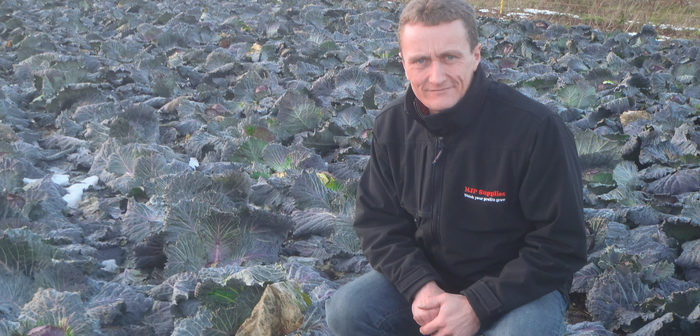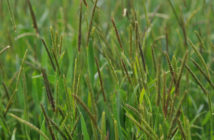Field trials of 13 biostimulants on a crop of Combining Peas have shown that a seaweed-based product delivered a several benefits, including increased yield.
Undertaken by the Processors and Growers Research Organisation (PGRO), the UK’s centre of excellence for peas and beans, the trial results show that the use of Algifol delivered the highest yield.
The seaweed-based biostimulant, which is marketed in the UK by MJP Supplies, produced an almost 3% increase in yield (2.94%) compared to the untreated crop. Aligfol was 11.3% better than the worst performing biostimulant, which actually reduced yield by nearly 3% (2.94%).
The report also shows that the presence of foot rot infection was lower in the sample crop treated by Algifol compared to the control crop (0.6 and 0.7, respectively)
Manufactured in Germany by NeoMed-Pharma, Algifol contains significant levels of trace elements, vitamins, enzymes, amino acids, carbohydrates, polyuronides and growth-regulating plant hormones.
“The field trials were undertaken in Lincolnshire in 2020, following one of the wettest periods on record. The field had not recovered from the dreadful weather in 2019 and it was difficult for the grower to establish a good seed bed,” says Marcus Palmer, director of MJP Supplies. “Despite the conditions, Algifol delivered several marginal gains, and in today’s economic climate, these small improvements can make a big difference to profit levels and return on investment.”
The PGRO results show that Algifol generated 3.84 tonnes per hectare compared to 3.73 tonnes per hectare of untreated peas. Marcus predicts that this increase of almost 3% in yield (2.94%) could be worth as much as £40 per hectare to a grower.
With the farming community increasingly interested in natural fertilisers and stimulants, Marcus believes it is interesting that the PGRO trial shows that ten of the biostimulants performed worse than the control crop.
“The Government is very keen for pesticides that can harm the environment to be removed, which is driving an interest in biostimulants,” says Marcus. “The results of these trials are quite worrying as they indicate that quite a few biostimulants can have a negative effect on crop health and yield. Thankfully, this is not the case with Algifol, which has increased the yield.
“Every farmer is trying to increase their return on investment, and it’s very pleasing to see that this field trial shows that Algifol will more than pay for itself if an application delivers a 3% increase in yield.
“There is also the added benefit of Algifol being more concentrated than other biostimulants. This means you can apply less, and we have reduced the amount of packaging in which Algifol is supplied.”
As well as having a yield-enhancing effect, NeoMed-Pharma says its biostimulant also helps lower the crop’s carbon footprint by improving fertiliser uptake through better rooting and improved photosynthesis, thus reducing leaching and losses to the atmosphere.
Algifol can be used on all crop types, with MJP Supplies recommending a one litre per hectare rate of application via a knapsack, trailed or mounted sprayer. The product can be applied alongside most crop protection products.
For more information about Algifol or to make a purchase, with a one litre can costing just £21.99+VAT, visit www.mjpsupplies.co.uk, call 07702 293 727 or email marcus@mjpsupplies.co.uk




